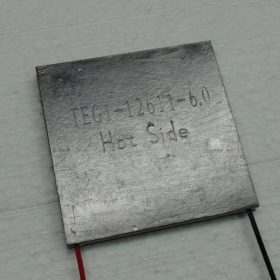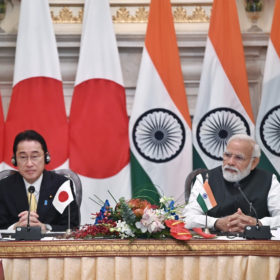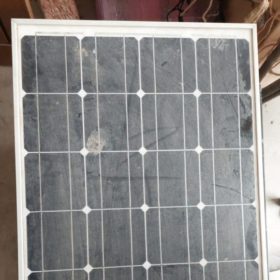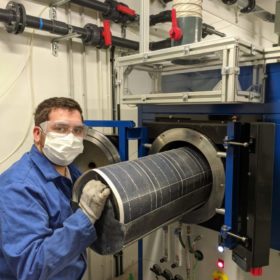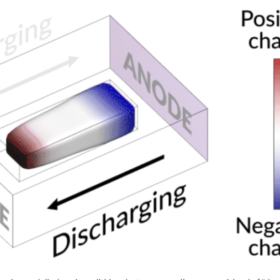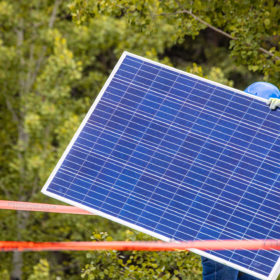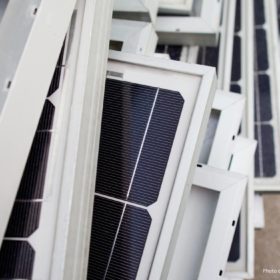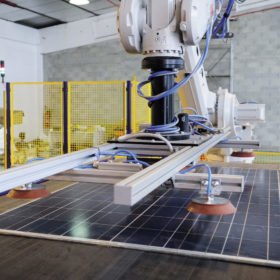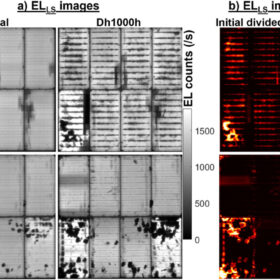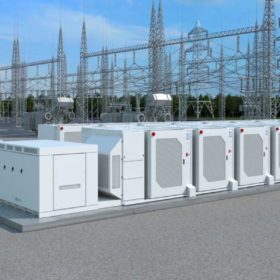Upcycling silicon waste from end-of-life solar panels into thermoelectrics
Researchers in Singapore have developed a new technique in which polycrystalline silicon is pulverized into powder and pelletized into ingots. The process relies on spark plasma sintering to dope the silicon with germanium and phosphorus.
Lithium battery recycling in India
Nitin Gupta, chief executive officer and co-founder, Attero Recycling, speaks to pv magazine about the supply chain concerns for lithium battery storage manufacturing in India, current battery recycling scenario and Attero’s capacity.
India and Japan to cooperate on solar power, clean hydrogen and electric vehicles
Under their clean energy partnership, both countries also agreed to cooperate in the disposal, recycling, and reclamation of valuable materials from batteries, solar panels, turbine blades, and electronics.
Roadmap for solar module recycling in Bangladesh
Bangladesh currently does not have a recycling center for PV module recycling. But according to a group of local scientists, the country could evolve into a regional hub for PV waste recycling if proper guidelines are implemented.
New PV module recycling tech from France
French start-up Rosi Solar has developed an industrial solution claimed to be capable of recovering high purity silicon, silver and copper contained in end-of-life PV modules. The company’s technology is based on a pyrolysis process that makes it possible to isolate the different metals from the cells.
Bringing dead lithium back to life to boost battery lifespans
Researchers at Stanford University and the US Department of Energy’s SLAC National Accelerator Laboratory have explored the potential recovery of lost capacity in lithium batteries by using an extremely fast discharging step to reconnect an island of inactive lithium with the anode. Adding this extra step slowed the degradation of their test battery and increased its lifespan by nearly 30%.
Reuse or replace? IEA PVPS analysis considers all options for underperfoming PV modules
In a new report, experts from the International Energy Agency Photovoltaic Power System Programme (IEA-PVPS) have assessed the economical and environmental benefits of repairing and reusing or replacing solar modules that are not complying with a 30-year expected lifetime. They found that reusing offers the best environmental impact in all cases, while the profitability of this option is currently guaranteed only by rooftop PV under certain conditions. As for large-scale solar, module replacement remains the most competitive option.
Sustaining the battery storage supply chain
Noida-headquartered Lohum plans to expand its integrated lithium-ion battery manufacturing and recycling facility in India to 3 GWh and expand into the US with its first facility. Co-founder Justin Lemmon speaks to pv magazine about how their operations in India will solve the battery supply chain and cost challenge for the nation’s electric mobility and renewable energy ambitions.
End-of-life management of solar PV waste in India
A new study proposes an ‘extended producer responsibility’ based regulatory framework for end-of-life (EOL) solar PV management in India. Under the framework, the Government of India (GoI) works as the nodal agency, defining the roles and responsibilities of different stakeholders and regulating the overall supply chain. The onus of EOL solar PV take-back, transportation, storage, recovery, and destruction lies on the manufacturers, with the entire system cost borne by an executive committee formed by the manufacturers.
Module durability, and design for recycling
A new report published by the International Energy Agency offers a series of guidelines for the design of recyclable PV modules. The report aims to help manufacturers find the balance between durability and recyclability, to better address concerns about the 78 million tons of end-of-life PV modules expected by 2050.
